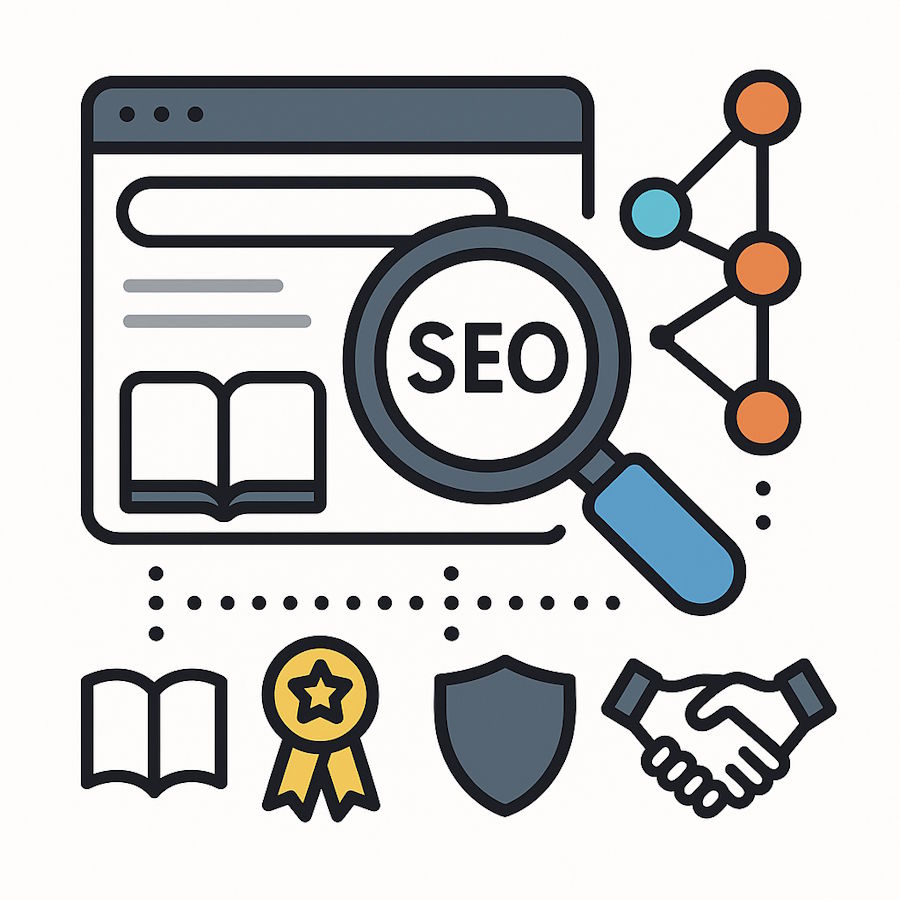Ten years ago, all it took to rank well in SEO was to fill in the right keywords. Even before lockdown, it was easier to rank a website because all you had to do was buy quality USA backlinks and optimize the content on your website.
Today, SEO has evolved significantly, involving many factors; simply adding keywords or buying backlinks won't get you to the top. To rank your website on the first page of Google, you must understand EEAT and Entity SEO.
But what are these terms?
How can you ensure your website aligns with EEAT and Entity SEO to attract new customers?
What is EEAT, and why does it decide whether your website fails or succeeds?
The classic definition of Google's EEAT is Experience, Expertise, Authority, and Trustworthiness, but what is it, and how can your website make the most of it?
Well, the answer is simple: EEAT is not a ranking factor like backlinks or meta tags, but it still finds its way into almost any SEO strategy because of its people-first approach.
You launch your website on Google to generate leads and increase sales, but Google doesn't care what you want from search engines. Google wants only one thing: that every search made on its platform gets a relevant and right answer, not the one that is more search-friendly.
EEAT is all about content and not about SEO. You might have no flaws in SEO, but if your content is not relevant, then your website might fail. So, before you start talking about EEAT with your SEO team, you must know about the concept inside out.
If your website offers high-quality content, many other websites will reference or mention it in their content. It provides an organic backlink that helps Google recognize your content's authority, which in turn aids your ranking.
What is entity SEO, and why is it the most viral SEO strategy?
Entities are specific or popular search terms that help Google understand the content.
For example, a couple of days ago, Messi played his last international game in Argentina. He is a popular Entity, and just typing about him on Google will give you access to the latest information. You can find a lot of related information, such as retirement, Argentina national football, Inter Miami, Barcelona, and so on, which helps Google understand the relationship.
Similarly, you can also search for tariffs, Trump, or any other entity.
At first, you might feel that Entity and keywords are the same, but they have big differences. Keywords are relevant search terms that people type on Google to know about a topic, whereas an Entity is the concept used by search engines to gain knowledge about a specific topic.
How does an entity impact your overall SEO strategy?
So, now that you know, Google builds a relationship between two entities based on how they are used across the web. When creating content for your website, it's essential to understand how well it is associated with other terms.
For example, when selling smartphones, typing relevant terms like "display," "processor," "camera," and "gaming" helps Google understand that your web page is about smartphones.
At the same time, when you have all the information covered, you can also showcase your website as a relevant source for users to gather information.
You can use entities in SEO with ease; all you need to ensure is that your content or blog has all the necessary LSI terms related to the topic. You can also utilize tools like Google's Knowledge Graph and "People Also Ask" sections from search pages to optimize your website.
Conclusion
EEAT and Entity SEO are not difficult if your ultimate goal is to offer quality content to your users. If you focus on quality content that addresses the specific challenges faced by your target audience, you are already ahead of your competition. Using entity SEO on your online store helps you rank better and look more trusted than just using keywords. At the same time, optimizing your website based on EEAT gives Google a green signal that you are leading a specific niche and can help you in rewarding your website.








